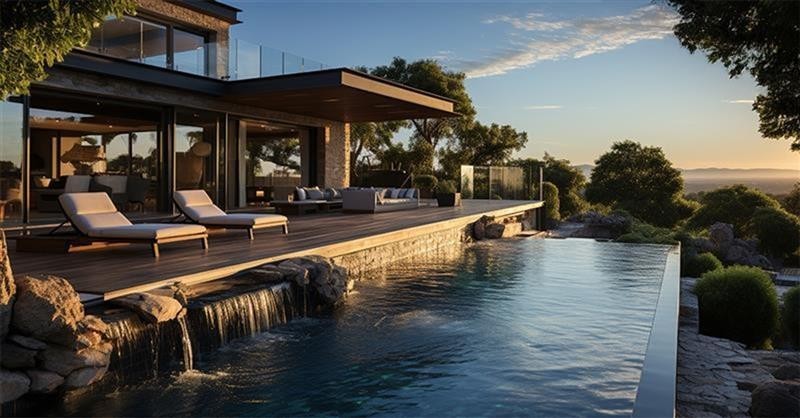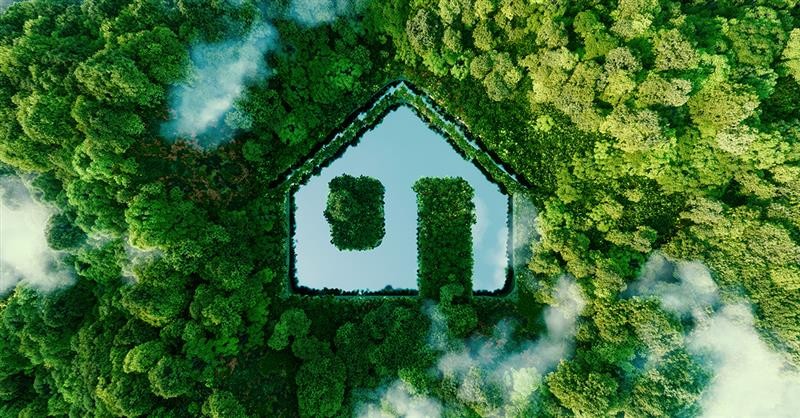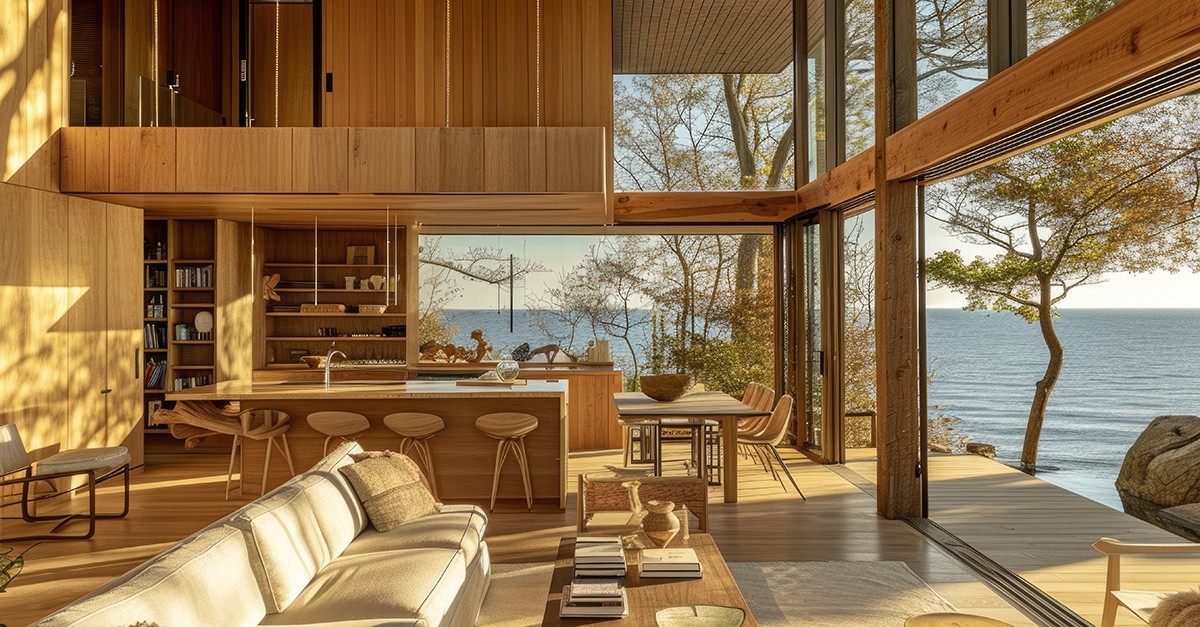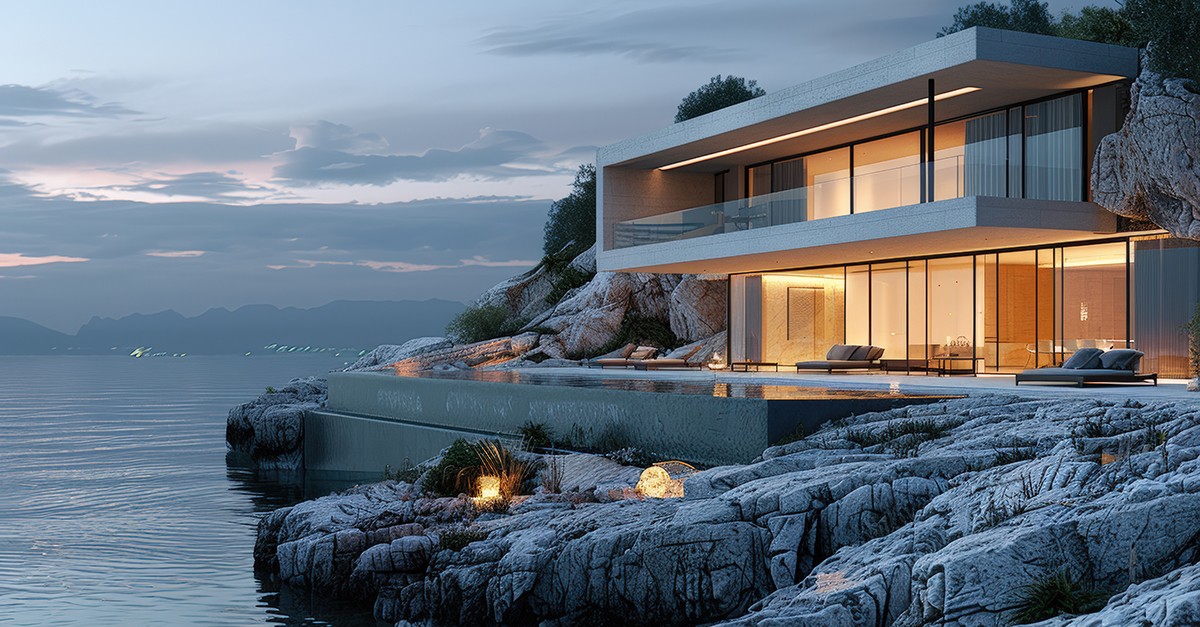
For decades, the luxury property market was defined by opulence, prime locations, sophisticated design, and exceptional finishes. In Portugal, as in other leading destinations, these hallmarks have long shaped the appeal of premium real estate. But today, a new priority is emerging at the heart of this segment: sustainability. What was once seen as a trend is now a fundamental value — one that investors are paying close attention to.
As environmental awareness rises, so too does the demand for homes that combine style with a sense of responsibility. In Portugal, this shift is being embraced across the sector, with leading developers and buyers alike recognising that true luxury must also be sustainable — a point confirmed by several market experts speaking to idealista/news.
Sustainability has moved from being a differentiator to becoming a requirement in high-end residential projects. Luxury villas and premium apartments in Portugal are now expected to include environmental certifications, energy-efficient systems, and eco-conscious materials. And this evolution goes beyond cost-saving or image — it reflects a broader cultural transformation. A younger generation of buyers, along with many seasoned investors, are increasingly unwilling to purchase properties that don’t align with sustainable values and respect for the environment.
This new perspective is redefining the very concept of luxury. From the green hills of the north to the sun-soaked Algarve in the south, Portugal is witnessing a wave of property developments that integrate sustainability at every stage, without compromising on comfort or aesthetic appeal. Historic buildings are being restored with an emphasis on reusing materials and harmonising with the landscape, while new projects are distinguished by features such as rainwater harvesting systems, solar energy, and smart home technology for efficient energy management.

A priority for an increasingly discerning investor base
According to Telmo Azevedo, Co-Head of Residential at JLL Portugal, sustainability is far from a passing trend — it is becoming “a growing priority in the premium market.” In these segments, there is a clear effort to integrate energy efficiency certifications, eco-friendly materials, and advanced technologies that promote resource reuse, all without compromising comfort, aesthetics, or exclusivity. Today’s luxury property buyers expect this commitment to a sustainable future.
Filipe Lourenço, CEO of Private Luxury Real Estate, highlights the “arrival of younger generations to the market, who have a deep concern for their ecological footprint.” For these clients, sustainability is not simply a bonus — it is a decisive factor when choosing a luxury home. From the materials used in construction to the way a property is maintained, every detail is examined through the lens of environmental responsibility. “Sustainability — from the environmental impact of construction to the ongoing maintenance of a property — is becoming increasingly relevant and is already a critical consideration,” he notes.
João Cília, CEO of Porta da Frente Christie’s, also observes “growing demand for premium properties that align with buyers’ ecological values.” The interest in homes with high energy efficiency, sustainable building materials, and smart technologies — including systems that manage lighting, climate control, and natural resource use — is rising significantly.
He also emphasises that the concept of sustainability extends beyond the building’s structure and design. It includes how the property interacts with its surroundings. “Many investors are seeking homes that blend seamlessly with the landscape and natural environment, minimising their ecological footprint while preserving the beauty of the setting,” he adds.
Portugal’s luxury property market is responding to these expectations, setting a new standard for sustainable living at the highest level.

Sophistication and sustainability go hand in hand
Jorge Costa, COO at Quintela e Penalva I Knight Frank, highlights the growing level of awareness and expectation among high-profile clients — “a well-informed buyer who is actively seeking the most sustainable solutions.” Increasingly, purchasing decisions are directly tied to a property’s ability to meet sustainability criteria, which pushes developers to incorporate environmental considerations from the design phase right through to execution.
As a result, the luxury property landscape in Portugal is being reshaped by a demand that is here to stay. What was once considered a bonus has now become essential: in today’s market, being sustainable is synonymous with being truly exclusive.
Ana Jordão, Residential Business Development Director at Savills, points to a new level of maturity in the sector. In her view, sustainability is no longer just appreciated — it is expected. Buyers and investors are scrutinising every detail: certifications such as LEED or BREEAM are seen as assurances of best practices and often play a decisive role in an increasingly competitive market. Far from being an optional extra, incorporating energy- and water-saving technologies, eco-efficient systems, and environmentally friendly materials into luxury homes is now a clear imperative.
This view is reinforced by the team behind Invicta Park, who cite a concrete example: the restoration of the Tenente Valadim building, now reborn as the Art House Boavista project. The development combines the preservation of architectural heritage with modern sustainable solutions — a clear demonstration that sophistication and environmental responsibility are not only compatible, but complementary.
Portugal’s luxury property market is proving that sustainability and elegance can — and must — coexist in the homes of the future.

According to Sara Infante, Partner & Founder at Infante & Riu, lifestyles themselves are also adapting to this new reality. Minimalism, often associated with contemporary design, is now seen as a practical expression of a more conscious mindset. This shift, she notes, “increasingly requires luxury developments to incorporate these principles right from the outset.”
Paulo Trapola, consultant at Exclusive Lisbon Real Estate Investments, is even more direct: in the luxury segment, achieving the highest energy rating — A+ — is practically a given.
Daniela Rebouta, Sales Director at Engel & Völkers for Lisbon, Oeiras and Setúbal, underlines the impact of growing social awareness, which is leading to a marked increase in demand for energy-efficient properties built with low-impact materials and featuring sustainable resource management systems.
This view is echoed by Filipa Frey-Ramos, Managing Director of BARNES International Realty, who notes a clear rise in appreciation for features such as solar panels, rainwater harvesting systems, and other measures that help reduce a property’s ecological footprint — all, of course, without compromising on comfort or elegance.
Portugal’s luxury market is evolving — not just in how properties are built and designed, but in how they reflect the values of a new generation of buyers. Today, environmental responsibility is not at odds with refinement; it is a fundamental part of what defines true luxury.


